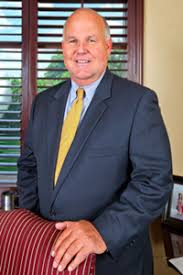
As he makes a run for Governor, Oklahoma Auditor and Inspector Gary Jones thinks the oil and gas industry has made the right move in agreeing to a proposed change in the gross production tax. He too has changed his original call for a 5 percent gross production tax for the first three years of production and agreed with the industry.
“My deal on the gross production tax is really a re-set to bring it from the 2 percent passed in 2014 and bring it to a reasonable rate of 4 percent,” said Jones in an interview with OK Energy Today. “Originally, I would like to have had 5 percent but I think this is a good compromise.”
Jones pointed out the original rate of 7 percent was changed in 2014 to 2 percent.
“It was a rebate for horizontal drilling and deep wells, but that was set to expire. It was an incentive to develop the process, but it’s state of the art now,” he added.
Jones originally announced his economic development plan last spring when he went public with a campaign for the Republican nomination for governor. It was his 5-5-5 plan but now it’s changed because of his compromise to create a 4 percent gross production tax on oil and gas.
“This is the same plan but we understand there’s a consensus the oil companies are willing to go to 4 percent and 7 percent. The only adjustment I’ve made in my plan is 4 percent,” said Jones. “I think that’s a good consensus.”

With teachers leaving the state state services being cut because of the state government budget crisis, Jones said the 4 percent gross production tax will restore some of the revenue to the state.
He estimates that moving all wells currently at 2 % to 4% and all future wells to begin at 4 % for the first 3 years of production will raise an estimated $133.5 million a year.
His plan is also different from the Step Up Oklahoma group plan to put a 6 percent tax increase on gasoline, raising it to 23 cents a gallon and diesel fuel to 20 cents.
“My plan says it’s do a 3 cent a gallon tax on gasoline, raising it to 20 cents a gallon and the same for diesel fuel,” continued the Auditor. He estimates the motor fuel tax plan he’s created would result in $107 million a year.
He figures if a typical Oklahoma driver puts on 20,000 miles a year and gets 20 miles a gallon, “This’ll cost them $2.50 a month and that money will go toward roads and bridges.”
Jones hasn’t forgotten the wind industry. He said there should be a tax on the generation of electricity by wind. He’s proposing a fee of $1 per MWh in a renewables generation tax and says it will raise $23 million a year for the state government.
“My proposal is this…we’ve literally put hundreds of millions of taxpayers dollars for development and it’s time we get a return on that investment.”
Jones has another energy related proposal. He was to cap the transferability and cash refundability for coal, wind and railroad credits effect the 2018 tax year,a move that would bring in another $22million a year for the state government.
The Auditor has other tax proposals including a $1.50 a tax increase in a package of cigarettes and the elimination of the office of Lieutenant Governor. Jones said by eliminating the position of Lieutenant Governor and assigning those same duties to a member of the Governor’s cabinet, an estimated $750,000 a year could be saved.
He also has suggested the creation of an independent budget office, the Office of Accounting and Budgets which would be tasked with providing detailed and accurate financial information and proposed budgets for each state agency. It would eliminate the current system where the budget process involves the Oklahoma House, Senate and Governor’s office with three different fiscal staffs gathering information and independently developing a budget. Jones estimates savings could total $1 million and maybe eliminate some of the politics played in the creation of different budgets.
Listen to a portion of the interview with Jones.





